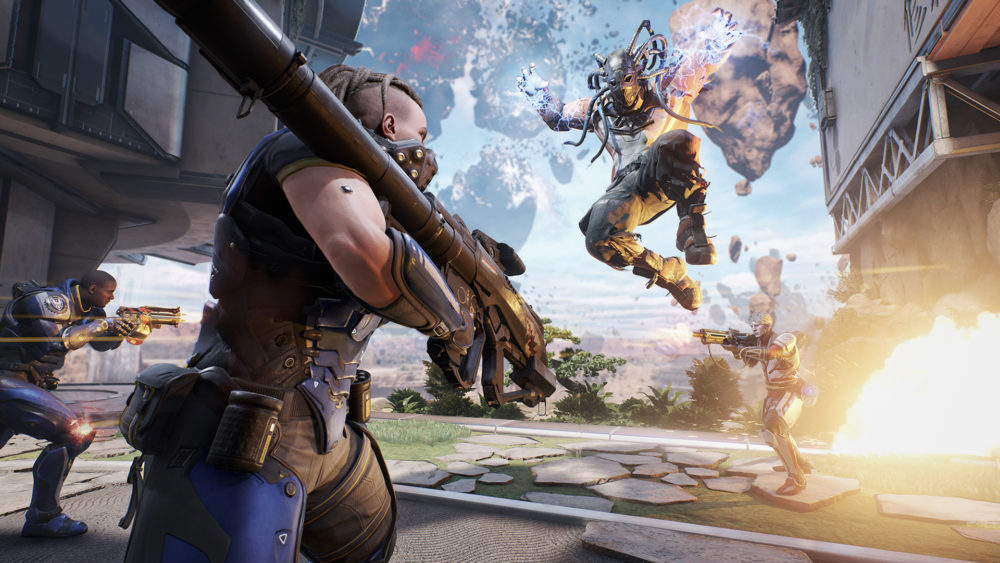
In 2010, Gabe Newell joined Sony at E3, in one of the most controversial crossovers of all time, to announce cross platform play between PS3 and PC for their then-forthcoming title, Portal 2. Newell also noted that he and the gathered throng were seeing a shift in the games industry.
Video: Kahleb Olsson
“Entertainment-as-a-product to entertainment-as-a-service”
Essentially, for video games, Newell was referring to a move away from what could have been considered the “traditional model” — more complete games at a price of $80-100 AUD — and toward $69 starter versions, persistent online worlds and micro-transactions to bolster the experience where the consumer sees fit.
Although yearly franchises like Call of Duty are still able to rack up the kind of sales figures that earn titles like ‘Best Selling Video Game of 2017’ using that older model, the shift Newell is describing in the video above is now widespread throughout the industry. Ubisoft have found great success with it in Rainbow 6: Siege, EA Dice has been using it in their Battlefield series since its fourth installment, and even Call of Duty is now being forced to shake their methodology up in order to retain players, promising additional content drops throughout the game’s life.
But gaming as a service is problematic for some developers. All it takes is a game that combines fun core gameplay with an ongoing event loop and a monetisation system that doesn’t feel like a rip off for a game to blow up. In 2016, Overwatch became my game of choice, forcing me to finally hang Team Fortress 2 up. It had everything that I wanted from a game and, coming over from TF2 especially, it was easy to work my skills into this newer, flashier, and constantly supported title. I was trying to complete the HSC at the time. I probably spent too much time playing the Halloween Terror event when I should have been studying. Those updates kept me playing the game, and I haven’t had to spend any more money on the title than I did when I bought it in 2016. Games are an expensive thing to adopt as a hobby. Spending less to get a lot is a tough point to argue against.
However, back in 2016 there was another game, one that a lot of people thought was going to present serious and direct competition to Overwatch. That game was Battleborn, a team-based shooter/MOBA hybrid by Gearbox, creators of the Borderlands series. Battleborn was swept away by Overwatch and its runaway popularity. Despite its considerable overall quality, it simply couldn’t hold a candle to Blizzard’s all-conquering team shooter juggernaut.
While Battleborn subscribed to the idea of “gaming as a service” — Gearbox had planned to have both paid and free updates throughout its lifespan — one has to wonder what Battleborn could have done to save itself. Going over coverage of the game in 2016, it seems as if Overwatch had it beat from every angle, especially with the promise that all additional content will be accessible for free.
Last year in September, the Battleborn team announced that development on the game had ended, and that whilst its servers would stay up, no further updates would be created or released. That absolutely sucks — even if you’re not a fan of the title, you’ve got to admit it’s not a bad thing to have choice in the market. The game’s failure to keep a constant audience was also considerably bad for the developers — all the time and resources spent developing Battleborn could have been allocated to Borderlands 3. At least the developers got to pursue some creativity with Battleborn, and I imagine every single person from the Battleborn team would still tell you it was worth the effort.
In August 2017, another new challenger approached — Lawbreakers, proudly toted by industry veteran Cliff Bleszinski, with his new studio Boss Key.
Lawbreakers was marketed as a much more hardcore FPS than its contemporaries, and the hours that I pumped into it certainly felt like that — it was insanely fun. But again, it was swept up in the tide of its contemporaries and couldn’t ever really recover. Lawbreakers also subscribed to the notion of “gaming as a service” but like Battleborn it had to contend with Overwatch. Although the buy-in was cheaper than Overwatch, consumers weren’t tempted. Content creator Crowbcat made a good compilation of the key points of Lawbreakers.
Earlier this month, Lawbreakers shut down its servers after development shut down. Boss Key closed earlier in the year. Before folding up, Boss Key made a last ditch attempt to save itself with an 80’s inspired battle royale title called Radical Heights. Like Lawbreakers, the game released into an already crowded marketplace and couldn’t muster the numbers needed to stave off closure.
It’s really unfortunate that these titles barely got to see the light of day only to be snuffed so quickly — they were great, made by developers that were very enthusiastic about the creation of these titles.
Let’s hope with titles like Scum, World War 3 and the plethora of battle royale games coming market, that we don’t see other titles meeting similarly difficult ends.
